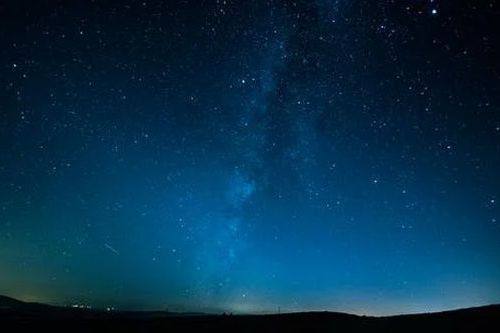John 1:19-28
Now this was John’s testimony when the Jewish leaders sent to him priests and Levites from Jerusalem to ask him, “Who are you?” He confessed—he did not deny but confessed—”I am not the Christ.” So they asked him, “Then who are you? Are you Elijah?” He said, “I am not.” “Are you the Prophet?” He answered, “No.” Then they said to him, “Who are you? Tell us so that we can give an answer to those who sent us. What do you say about yourself?” John said, “I am the voice of one crying out in the wilderness, ‘Make straight the way for the Lord,’ as Isaiah the prophet said.” (Now they had been sent from the Pharisees. So they asked John, “Why then are you baptizing if you are not the Christ, nor Elijah, nor the Prophet?” John answered them, “I baptize with water. Among you stands one whom you do not recognize, who is coming after me. I am not worthy to untie the strap of his sandal!” These things happened in Bethany across the Jordan River where John was baptizing.
The verses we have now read begin the properly historical part of John’s Gospel. Hitherto we have been reading deep and weighty statements about Christ’s divine nature, incarnation, and dignity. Now we come to the plain narrative of the days of Christ’s earthly ministry, and the plain story of Christ’s doings and sayings among men. And here, like the other Gospel-writers, John begins at once with “the record” or testimony of John the Baptist. (Matt. 3:1; Mark 1:2; Luke 3:2.)
We have, for one thing, in these verses, an instructive example of true humility. That example is supplied by John the Baptist himself.
John the Baptist was an eminent saint of God. There are few names which stand higher than his in the Bible calendar of great and good men. The Lord Jesus Himself declared that “Among those who are born of woman there has not risen a greater than John the Baptist.” (Matt. 11:11.) The Lord Jesus Himself declared that he was “a burning and a shining light.” (John 5:35.) Yet here in this passage we see this eminent saint lowly, self-abased, and full of humility. He puts away from himself the honor which the Jews from Jerusalem were ready to pay him. He declines all flattering titles. He speaks of himself as nothing more than the “voice of one crying in the wilderness,” and as one who “baptized with water.” He proclaims loudly that there is One standing among the Jews far greater than himself, One whose shoe-latchet he is not worthy to unloose. He claims honor not for himself but for Christ. To exalt Christ was his mission, and to that mission he steadfastly adheres.

The greatest saints of God in every age of the Church have always been men of John the Baptist’s spirit. In gifts, and knowledge, and general character they have often differed widely. But in one respect they have always been alike–they have been “clothed with humility.” (1 Pet. 5:5.) They have not sought their own honor. They have thought little of themselves. They have been ever willing to decrease if Christ might only increase, to be nothing if Christ might be all. And here has been the secret of the honor God has put upon them. “He that humbles himself shall be exalted.” (Luke 14:11.)

If we profess to have any real Christianity, let us strive to be of John the Baptist’s spirit. Let us study HUMILITY. This is the grace with which all must begin, who would be saved. We have no true religion about us, until we cast away our high thoughts, and feel ourselves sinners. This is the grace which all saints may follow after, and which none have any excuse for neglecting. All God’s children have not gifts, or money, or time to work, or a wide sphere of usefulness; but all may be humble. This is the grace, above all, which will appear most beautiful in our latter end. Never shall we feel the need of humility so deeply, as when we lie on our deathbeds, and stand before the judgment-seat of Christ. Our whole lives will then appear a long catalogue of imperfections, ourselves nothing, and Christ all.
We have, for another thing, in these verses, a mournful example of the blindness of unconverted men. That example is supplied by the state of the Jews who came to question John the Baptist.
These Jews professed to be waiting for the appearance of Messiah. Like all the Pharisees they prided themselves on being children of Abraham, and possessors of the covenants. They rested in the law, and made their boast of God. They professed to know God’s will, and to believe God’s promises. They were confident that they themselves were guides of the blind, and lights of those who sat in darkness. (Rom. 2:17-19.) And yet at this very moment their souls were utterly in the dark. “There was standing among them,” as John the Baptist told them, “One whom they knew not.” Christ Himself, the promised Messiah, was in the midst of them, and yet they neither knew Him, nor saw Him, nor received Him, nor acknowledged Him, nor believed Him. And worse than this, the vast majority of them never would know Him! The words of John the Baptist are a prophetic description of a state of things which lasted during the whole of our Lord’s earthly ministry. Christ “stood among the Jews,” and yet the Jews knew Him not, and the greater part of them died in their sins.

It is a solemn thought that John the Baptist’s words in this place apply strictly to thousands in the present day. Christ is still standing among many who neither see, nor know, nor believe. Christ is passing by in many a parish and many a congregation, and the vast majority have neither an eye to see Him, nor an ear to hear Him. The spirit of slumber seems poured out upon them. Money, and pleasure, and the world they know; but they know not Christ. The kingdom of God is close to them; but they sleep. Salvation is within their reach; but they sleep. Mercy, grace, peace, heaven, eternal life, are so near that they might touch them; and yet they sleep. “Christ stands among them and they know him not.” These are sorrowful things to write down. But every faithful minister of Christ can testify, like John the Baptist, that they are true.

What are we doing ourselves? This, after all, is the great question that concerns us. Do we know the extent of our religious privileges in this country, and in these times? Are we aware that Christ is going to and fro in our land, inviting souls to join Him and to be His disciples? Do we know that the time is short and that the door of mercy will soon be closed for evermore? Do we know that Christ rejected will soon be Christ withdrawn? Happy are they who can give a good account of these inquiries and who “know the day of their visitation!” (Luke 19:44.) It will be better at the last day never to have been born, than to have had Christ “standing among us” and not to have known Him.
